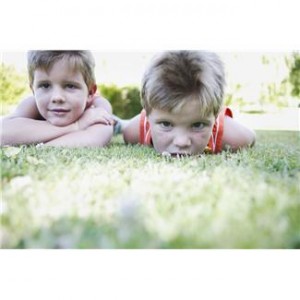Weekends were included in the calendar so at least one day there would be time for getting outside and connecting to nature, which is part of supporting the development of kindergarten readiness. Recent studies are finding more and more benefits to spending time outdoors such as improving health and fitness, increasing the length of attention span, promoting problem-solving, encouraging creativity, reducing anxiety, and enhancing emotional-social connections.
 Spending time in nature is a more than a learning activity. In a way, nature is also a learning strategy because it guides children to be aware of their senses. Observing is another important skill for kindergarten readiness. This weekend, you may be able to take your child to a natural area to explore, discover and observe. This should be a good time of year to look for bugs and other critters close to the ground. Carefully turn over a rock and see if there’s anything hiding underneath. Ask your child what things does s/he see, hear, smell and feel? What kind of colors and shapes are there? What things are growing and what ones are moving?
Spending time in nature is a more than a learning activity. In a way, nature is also a learning strategy because it guides children to be aware of their senses. Observing is another important skill for kindergarten readiness. This weekend, you may be able to take your child to a natural area to explore, discover and observe. This should be a good time of year to look for bugs and other critters close to the ground. Carefully turn over a rock and see if there’s anything hiding underneath. Ask your child what things does s/he see, hear, smell and feel? What kind of colors and shapes are there? What things are growing and what ones are moving?
You can observe your child’s delight and curiosity. A camera can take photos of exciting finds for later sharing with others. By attaching learning on to kids’ enthusiasm and natural curiosity we make it fun and meaningful, promote readiness for kindergarten, and a deep connection to the natural world. What kind of learning, fun and play do you see?
